To enjoy some of New Zealand’s finest scenery, hike or cycle Queenstown Trail. Hailed as New Zealand’s most popular Great Ride, the off-road trails take cyclists and hikers from Queenstown to Gibbston via historic Arrowtown on a selection of full-day, half-day, and shorter rides.
Table of Contents
Cycle Queenstown Trail
The Queenstown Trails Trust has developed an extensive network of off-road trails for walkers and cyclists. To take advantage of over 130 kilometres of cycling paths that make up the Queenstown Trail, our group of six sexagenarians based ourselves in Arrowtown for three days of self-guided cycling. It was a perfect adventure for leisure cyclists.
Just 20 kilometres from Queenstown, Arrowtown has become a hub for riding the existing system of trails. The Queenstown Trail has become so popular that expansion plans are on the horizon.
(i) The Arrow River Bridges Ride
Our first day trip was to the winery region of the Gibbston Valley. We set off kitted out in layers. With a fresh dusting of overnight snow on the peaks, it was a cool February day with a predicted high of 11 degrees.
Hugging the Arrow River, the trail was well marked and well maintained. The smooth, hard-packed fine gravel made for a steady, rolling ride.
Quaint colonial cottages dotted the sides of the trail.
An interesting mix of bridges had us gently crisscrossing the willow-lined river. The Arrow River Bridges Ride crosses five bridges, including two suspension bridges. These are typical of trails in New Zealand and add interest and excitement to the ride.
The Southern Discoveries Suspension Bridge is one of the scenic stops along the trail and a popular spot to take photographs. It’s rated to support several riders crossing the gorge simultaneously. Still, the movement of the bridge is a deterrent for some.
On warmer days, the Arrow River must make for a refreshing splash. Packing a swimsuit during a hot summer day would add to the ride.
New Zealand is a beautiful country, no question about it. Unfortunately, I’d arrived from Canada with a severe cold and bailed for fear of not being able to finish the ride or holding up the group. Instead, I headed back to Arrowtown to take a leisurely self-guided ride around town.
(ii) Self-guided cycling tour of Arrowtown
Arrowtown is the most picturesque of Otago’s gold-rush towns and delightful to explore. Steeped in history, it is the epitome of quaintness. The discovery of gold in the Arrow River in 1862 sparked a gold rush that left behind about 70 historic buildings sprinkled throughout the town.
1. Lakes District Museum and Gallery
Residing in the former Bank of New Zealand building, the museum houses a rich display of exhibits and artefacts within three historic buildings. Visitors are introduced to a picture of early Māori life and the arrival of settlers and gold miners through displays with a strong visual focus. It’s regarded as one of New Zealand’s best small museums.
It’s also an information centre, so it warrants an early visit for maps, brochures, and guides.
2. Gold panning
Walk or bike along the Arrow River, and chances are you’ll observe gold panners trying their luck.
Or have a go yourself. The Lakes District Museum has an instruction guide and gold pans for hire ($3 plus $10 deposit). If you’d prefer a hands-on lesson, head over to Dudley’s Cottage next to the Chinese Village where pans are also available for rent.
3. Arrow River Trail
One of the most popular trails in Arrowtown follows the Arrow River. It’s a 4.2-kilometre loop beginning and ending at the notice board at Butler’s Green. Pick up a map at the museum and look for the ‘X’ marks the spot where shearer Jack Tewa found gold in 1862. For more information on this and several other walks beginning in Arrowtown, Chur New Zealand has a detailed list.
4. Dudley’s Cottage
The cottage is one of the oldest stone buildings in Arrowtown. I was seduced by one of its signature dishes, Chinese Dumplings, the beautiful outdoor picnic area, and its on-site herb garden.
5. Chinese Settlement
Visiting the Chinese Settlement was a highlight of my self-guided tour. Shunned by other miners and settlers during the gold rush, the 60 Chinese immigrants established themselves at the edge of town, on the fringes of society. Today, the partially restored settlement provides an indication of what their crude huts would have looked like and a glimpse into the harshness of their daily lives. It pays testament to the contribution they made to Arrowtown’s fortunes and the significant role that thousands of Chinese immigrants played in the early gold mining history of New Zealand.
Chinese miners lived here until 1928. One of the more prominent buildings is Ah Lum’s Store. During the period of the gold rush, the store sold a wide variety of imported goods from Europe and China. Ah Lum, also called Lau Lei, was a respected community leader. He was proficient in both English and Chinese and served as an interpreter and letter writer.
6. Soldiers Hill
From the centre of town, it’s a short walk or ride up to Soldiers Hill, located opposite the Arrowtown Cemetery. A short and steep walk to the war memorial monument at the top of Soldier’s Hill is bordered by tributes to fallen soldiers.
At the summit is a war memorial to fallen soldiers of World War I and World War II. Nearby is a German-made Turkish field gun captured by New Zealand forces in World War I. It was one of many artefacts brought back to New Zealand as part of a plan to develop a national war memorial in Wellington. Artefacts were ultimately distributed around the country. The Arrowtown Board applied for the gun that was received in 1921.
Soldiers Hill offers the best view of Arrowtown.
7. Arrowtown churches
During my self-guided tour of Arrowtown, I stumbled across several interesting churches built in the nineteenth century. Of interest was St Patrick’s Catholic Church (1874) and its connection with Australasia’s only Catholic saint, Mary MacKillop (St Mary of the Cross, 1842-1909). She founded a convent in the adjacent 1870s miner’s cottage. Both the church and the cottage were unlocked, an invitation to step inside.
(iii) Arrowtown to Queenstown Ride
For our 30-kilometre ride from Arrowtown to Queenstown, we stitched together several trails, connectors, and roads. The terrain between Arrowtown and Queenstown is undulating, with a few short uphill stretches. But, given that Arrowtown is 100 metres higher than Queenstown, most of the ride is flat or downhill.
We started with the Countryside Ride through the beautifully landscaped Millbrook Resort. Christine’s Hill is a steep descent; walking our bikes down part of the way felt safer, giving us more time to savour the view. Lying in the heart of the Wakatipu Basin, Lake Hayes flaunts its nickname of ‘Mirror Lake.’
At Rutherford Road is a short connector trail from the Countryside Ride to the Lake Hayes Circuit Walk that circumvents Lake Hayes.
It’s easy to see why Lake Hayes is called ‘the most photographed lake in New Zealand’. Reflecting the majestic mountains of the Wakatipu and the lush, earthy tones of the landscape, the lake offers many photographic opportunities.
We followed the Lake Hayes Circuit Walk along the eastern edge of the lake. The well-maintained trail was surfaced with packed gravel, and a little further, we crossed a section on boardwalks over marshland.
A stretch of roadway helped us link up with the Twin Rivers Ride overlooking the Shotover Bridge for vehicular traffic.
A safer crossing for cyclists is the Lower Shotover Bridge, 172 metres long and 16 metres above the river. The original bridge was built in 1871 during the gold rush. It washed away during floods in 1878, but it was rebuilt and reopened in 1915. It remained open for traffic until a new bridge was built downriver in 1975. The Old Shotover Bridge was restored in the early 2000s after decades of neglect. Today, the Lower Shotover Bridge is open to cyclists and foot traffic only.
The bridge offers panoramic views of the Shotover River and surrounding mountains.
A 5-kilometre connector trail took us from the Twin Rivers Ride to the Lake Wakatipu Ride hugging the Wakatipu lakeshore. It was an easy ride with the Remarkables as a stunning backdrop. The leisurely home stretch delivered us to downtown Queenstown.
Logistics
(i) Car hire
At Queenstown Airport, we picked up a car hire from Ace Rentals. It offered the cheapest rates on a two-week rental. The service was excellent.
(ii) Accommodation
In Arrowtown, we stayed at the Arrowtown Holiday Park in their tourist flats. The park was within easy walking or cycling distance of restaurants, amenities, and sights.
(iii) Bike hire
Arrowtown Bike Hire set us up with bikes, gear, trail maps, and shuttle service for three days of self-guided rides.
(iv) Other activities
Queenstown is a popular destination for adventure seekers looking for adrenaline-pumping activities such as bungee jumping, rafting, skydiving, and jet boating. It’s also a hiker’s paradise with several popular day hikes revealing stunning scenery from mountainous trails. Cycling was more our thing, so with a rental car, we stayed in towns such as Wanaka, Clyde, and Arrowtown to put us within easy reach of cycling trails.
Heading to New Zealand? If so, might you be interested in these related posts:
- Hike or cycle New Zealand’s Roxburgh Gorge Trail
- The dolphin-spotting dogs of Akaroa at work in New Zealand
- For spectacular scenery, hike New Zealand’s Banks Track
- The best way to see Milford Sound in New Zealand
- The controversial story of New Zealand’s bra fence
- Hike or cycle Clutha Gold Trail in New Zealand
- Hike or cycle Otago Central Rail Trail in New Zealand
If you found this post helpful, please share it by selecting one or more social media buttons. Have you hiked or cycled the Queenstown Trail? Or, perhaps you’ve visited Arrowtown or Queenstown and would like to add to the conversation. Please do so, in the comments. Thank you.
Pin it for later?

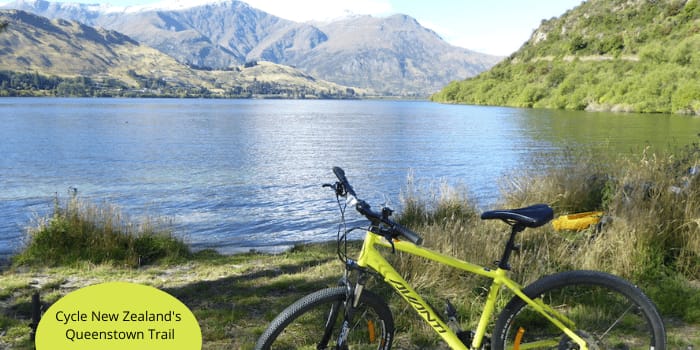
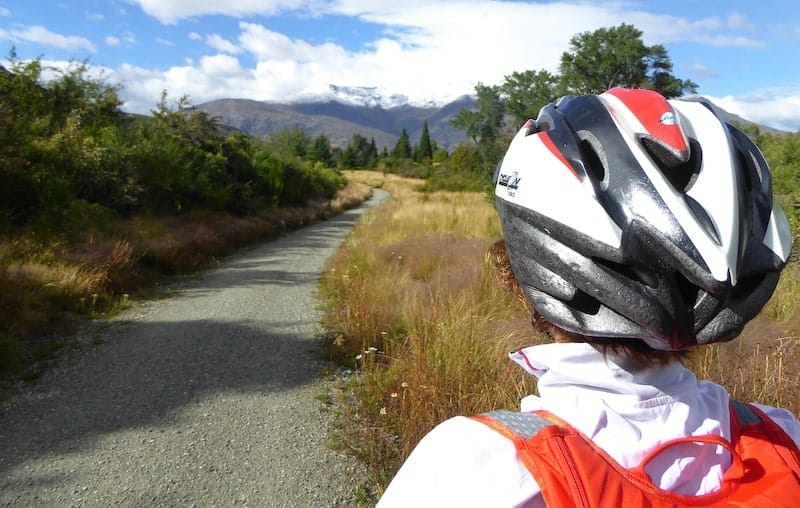
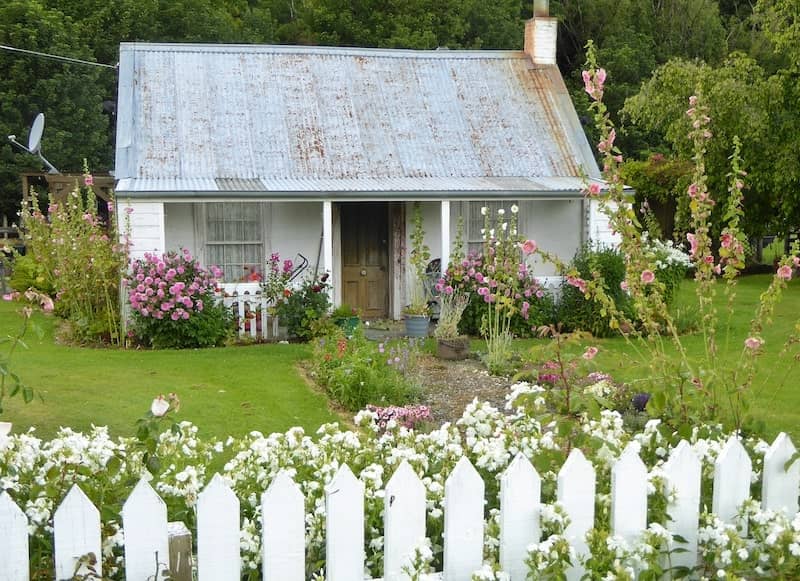
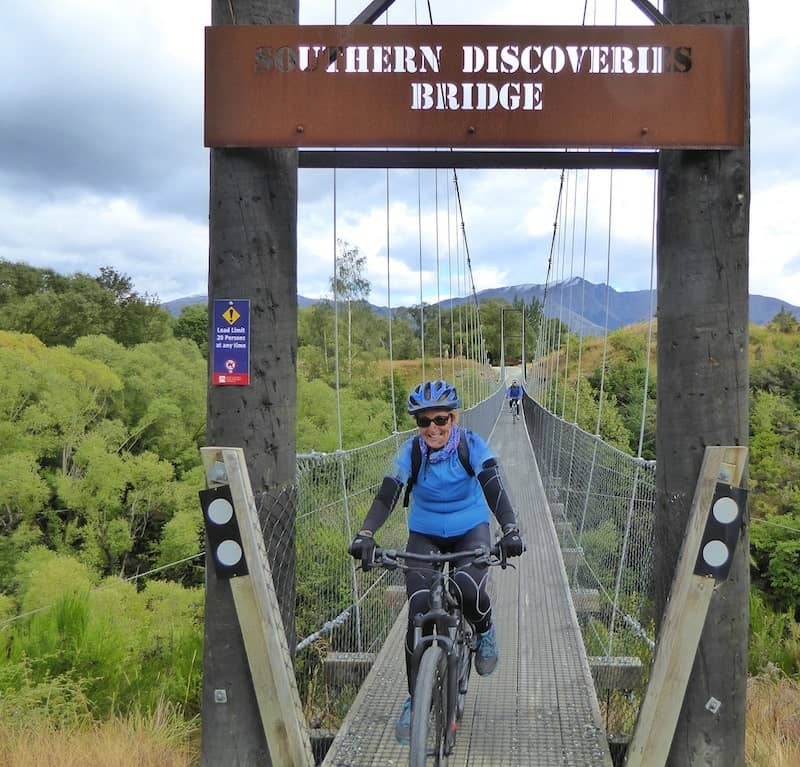
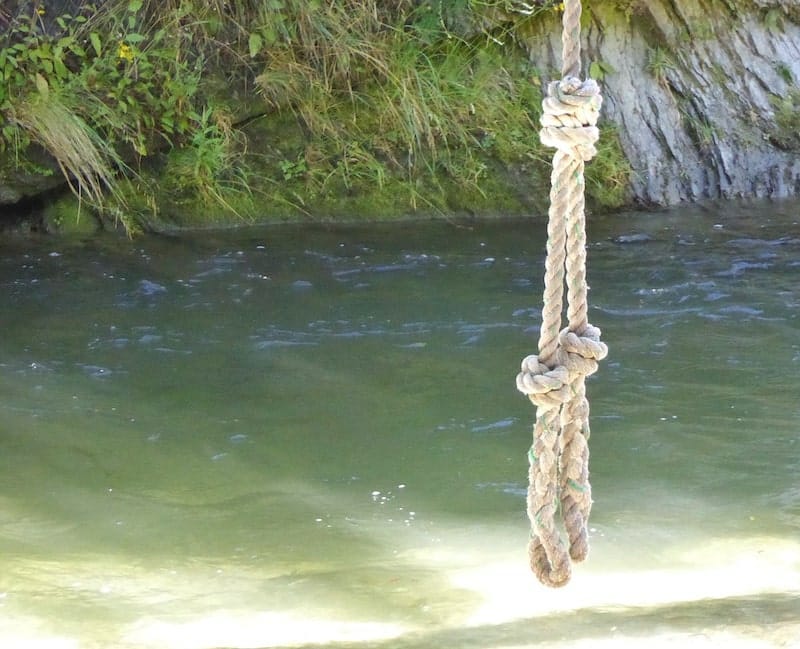
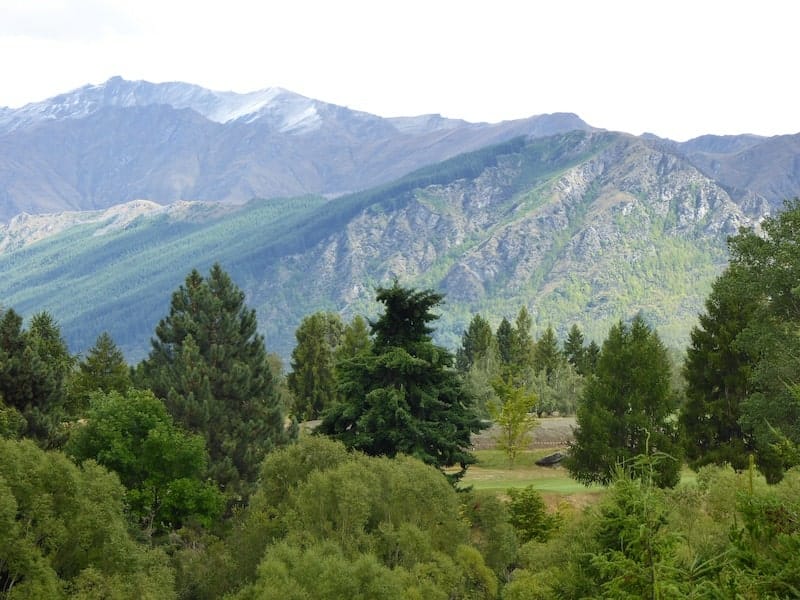
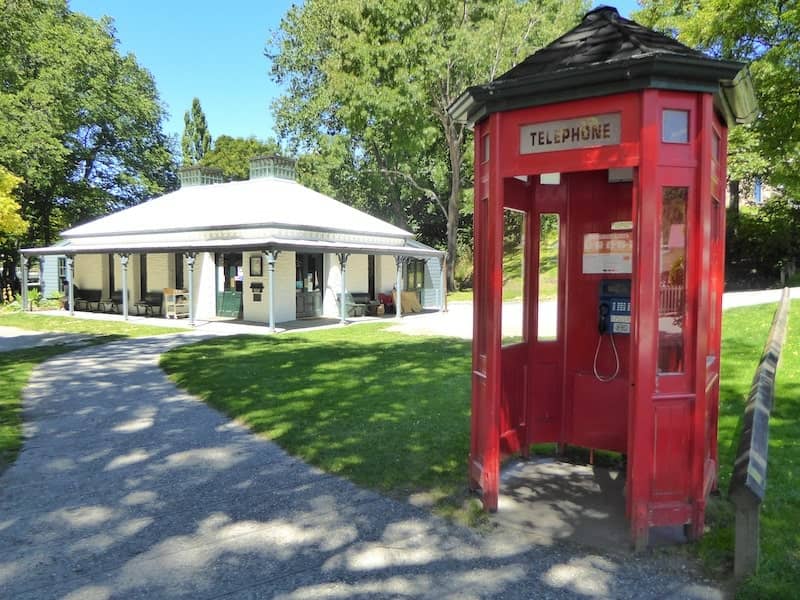
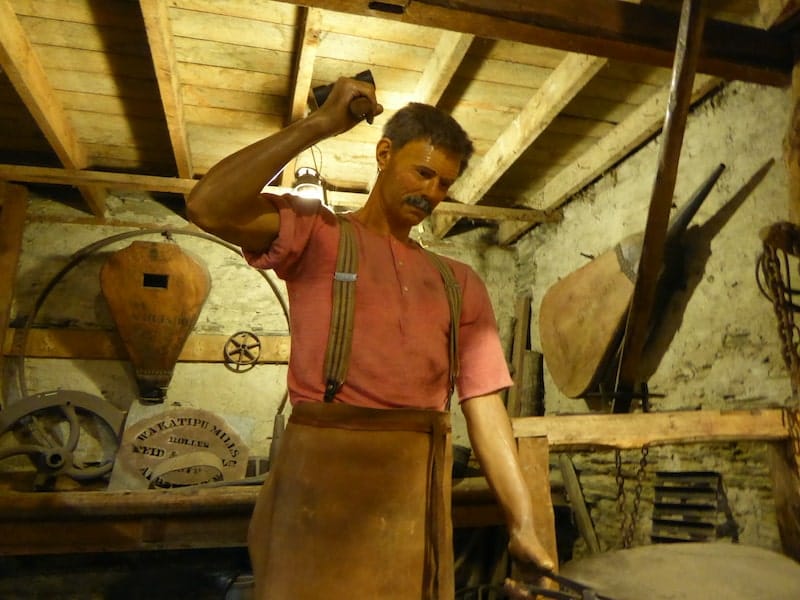
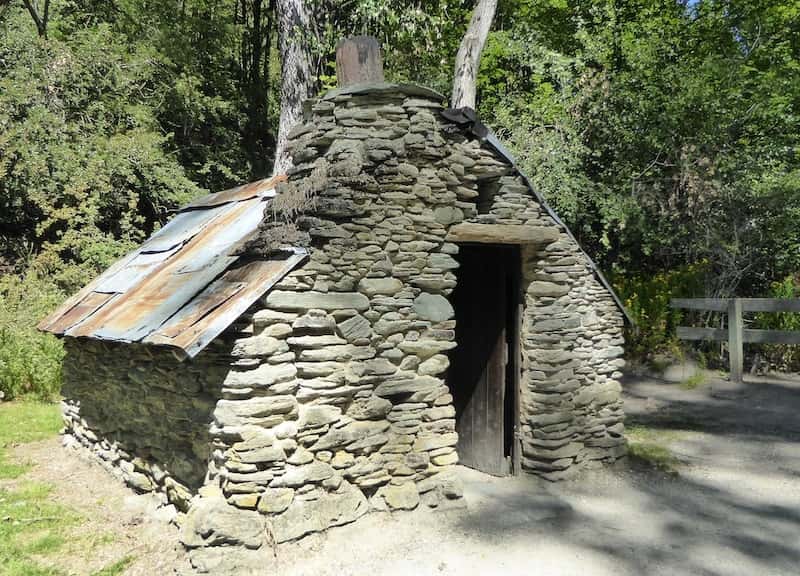
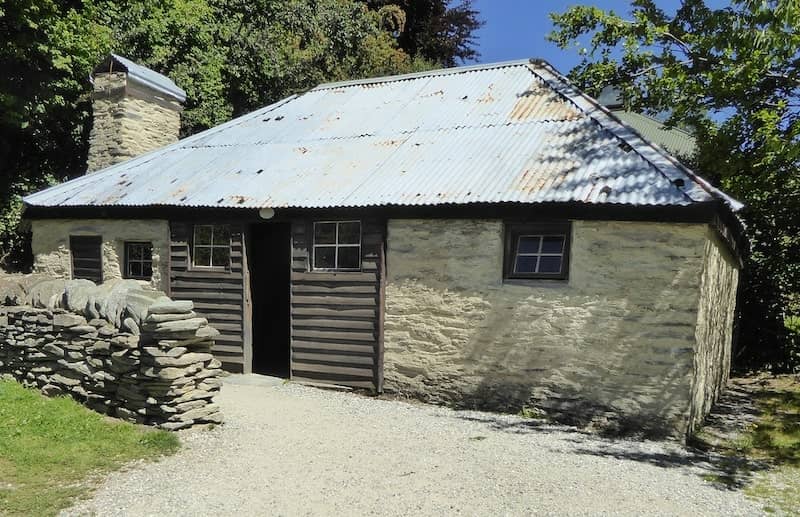
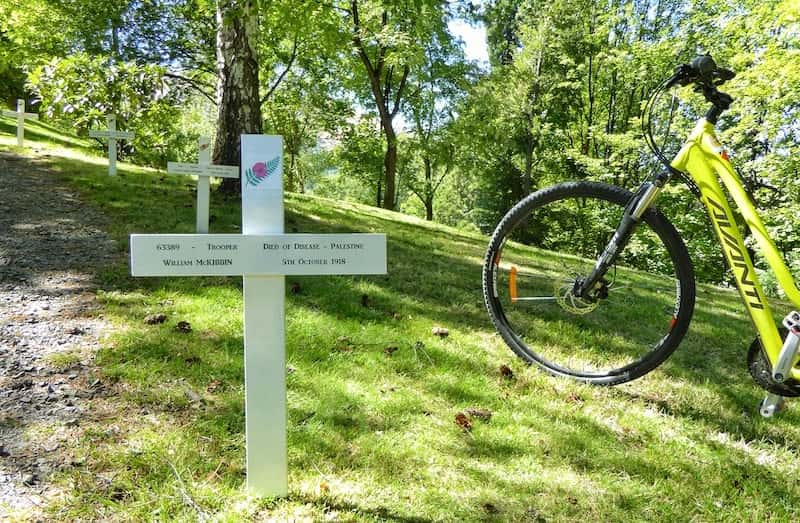
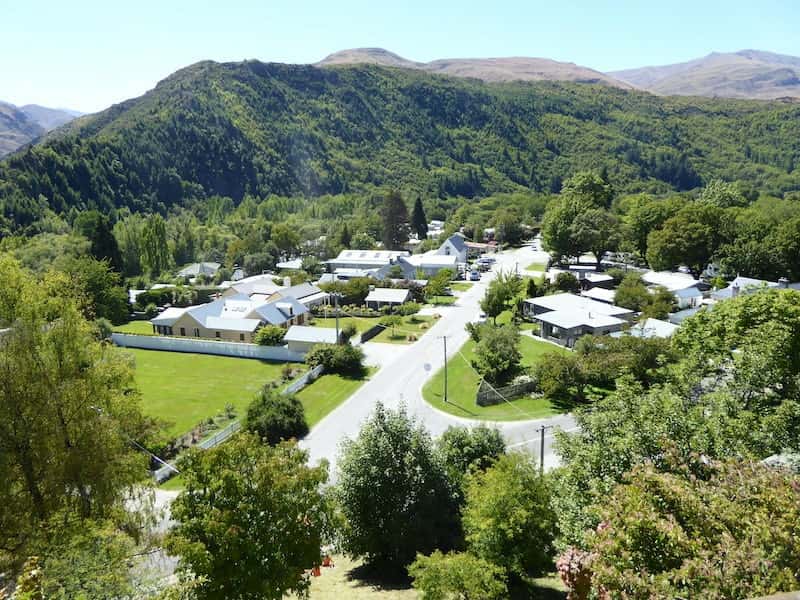
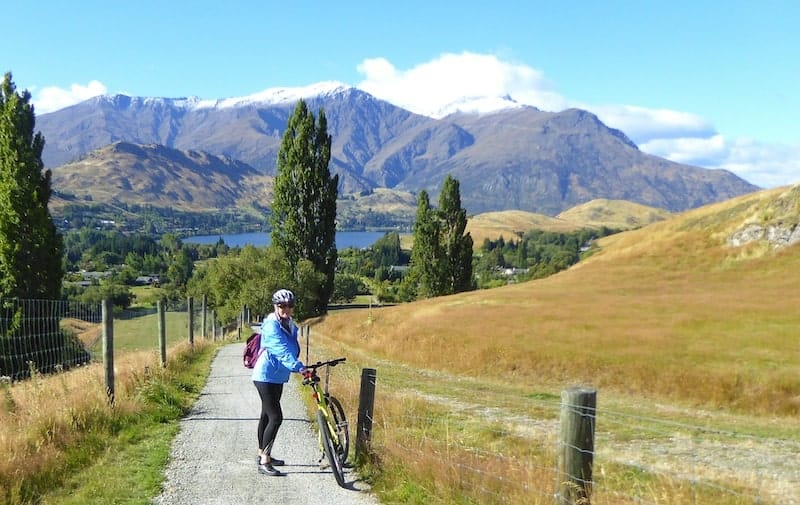
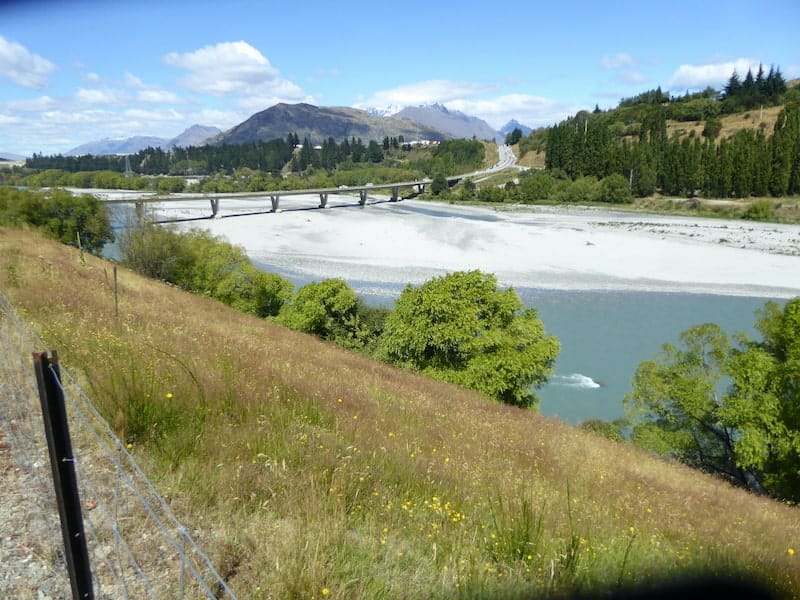
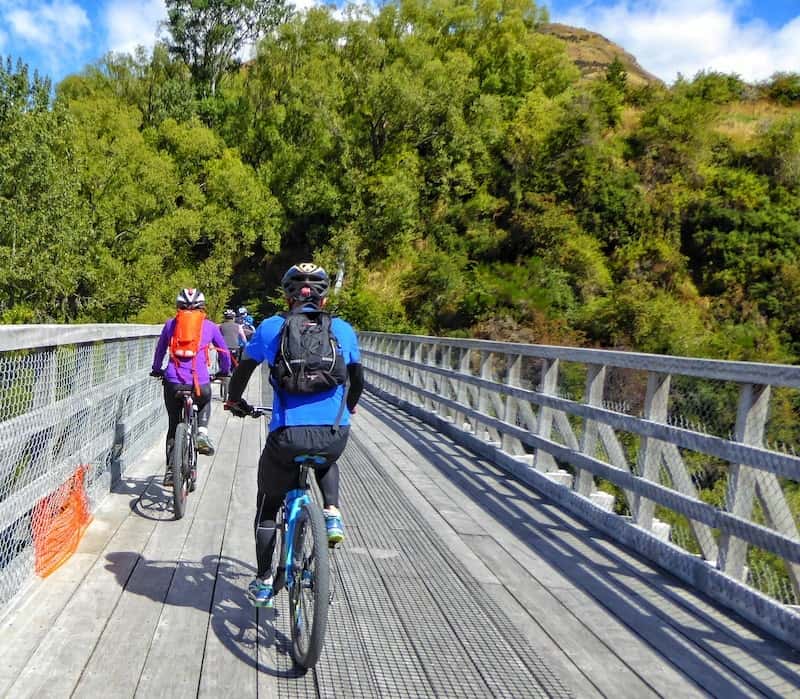
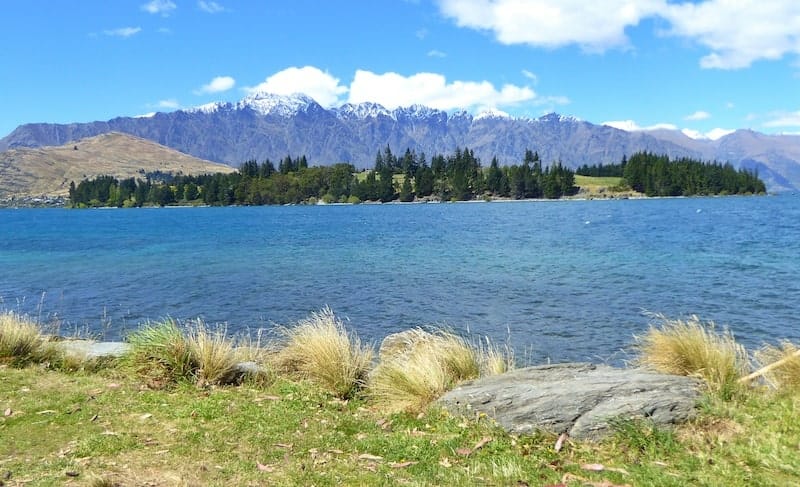
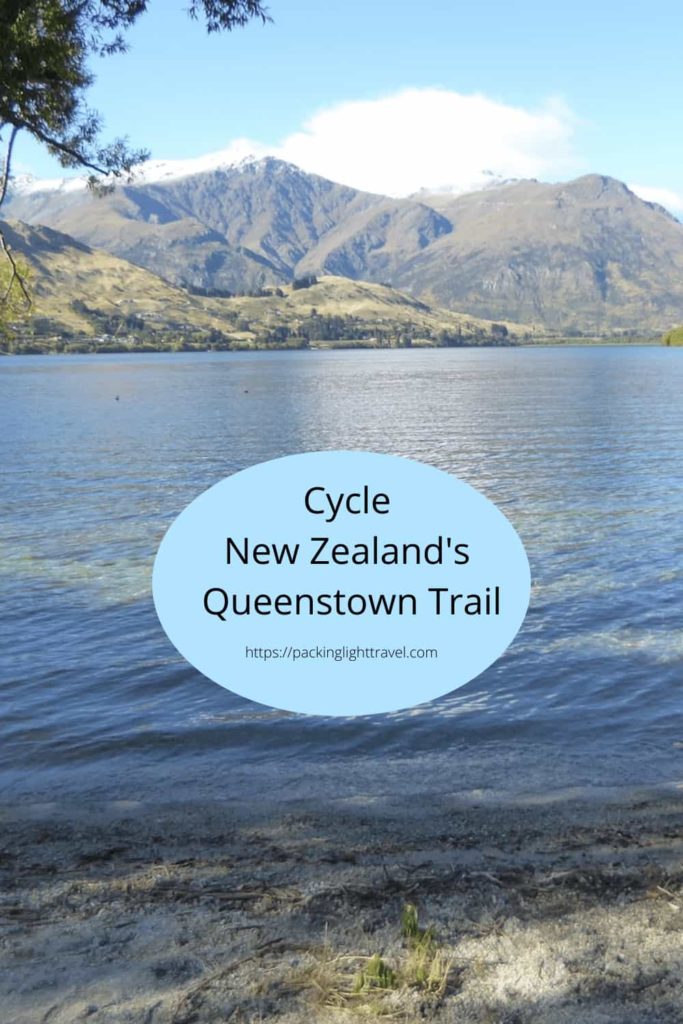




Trackbacks/Pingbacks